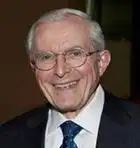Summing Up
The concept of "just enough" triggered the sensitivities of many of us, judging from the quantity of responses to this month's column. Respondents divided themselves not into the usual pro and con camps, but into those further defining the problem, those offering responses, and those posing questions about how we should think about "just enough." Bill Thompson put in words what a number of the respondents seemed to assume when he said, "I believe that the current, quasi-obscene disparities [in income] between top management and employees is one of the most demotivating and performance-numbing aspects of corporate life." Expanding the idea beyond effects on the organization, Sharika Kaul said, "... it's no fun being the only guest at your own party. The really smart people know this and build their relationships ..."
A number of respondents helped frame the challenge of "just enough." For example, Saurabh Dwivedy commented, "So long as there is humankind, there will be unfulfilled desires and broken dreams and a longing for 'being there.'" Pointing out the distinction between "sheer wealth and financial security," Aamir Rehman commented that "the lifestyles of some executives make them unstable despite their wealth." Fernando das Neves Gomes diagnosed the problem in this thoughtful way: "I think much of the time the big problem we face is when top executives start dealing with company results as their own personal results; and do the reverse too, dealing with family as just a company exercise." Tak Okamoto suggested that the concept poses real problems for managers. As he put it, "I judge 'just enough-ness' on the marginal utility of effort for one choice as compared to the others. As a manager, this is very complex because one must consider not only what is just enough for the firm and each employee, but also each employee's perception of what is just enough." It raises the question about whether one person can determine what is "just enough" for another.
What advice do respondents have for those facing these challenges? John Cockerill suggested that "looking forward to the future is the motivation for the present... Just remember where you came from. Be realistic about where you will end up." Marc Sylvain advised," The emphasis needs to be on process, on the journey, not on end points." Marc Michaelson reminded us that "when individuals manage their lives well, they make better teams and stronger organizations."
Respondents also provided some useful questions for us to think about. Mridula Dwivedi asks, "When organizations follow maximum profit/wealth, why not individuals?" Mark Porter posed the question in a different way, saying, "It seems that we have somewhat of a paradox if we are able to determine a threshold of 'just enough' in our personal lives, yet in our organizational lives we must continue to push for more." But Mal Watlington poses perhaps the most challenging question: "The history of philosophy is filled with great thinkers who advise us to seek balance in life, yet the history of the world appears to be driven by those who take things to extremes. Why is this so?" What do you think?
Original Article
Recent estimates suggest that U.S. business organizations have attained the greatest disparity between the highest and lowest paid members of any in the world—and not by just a little. A growing number of observers are beginning to argue that this can't be a good thing for employees and their morale, customers, investors, or even American competitiveness. Now a case is being made for the possibility that this may not even satisfy the deep-seated needs of those anointed with mega-rewards, especially if each successive increase only leads to an even higher expectation on the part of those obsessed with "scorekeeping," regardless of their performance.
In their new book, Just Enough, Laura Nash and Howard Stevenson of Harvard Business School suggest a definition of success gleaned from interviews with, or surveys of, at least 150 successful professionals and executives as well as others from, as they say, all walks of life. According to them, success comprises a set of "desired ends": “happiness (feelings of pleasure or contentment in and about your life), achievement (accomplishments that compare favorably against similar goals others have strived for), significance (a positive impact on people you care about), and legacy (establishing your values or accomplishments in ways that help others find future success)." According to Nash and Stevenson's subjects, not all ends are achieved simultaneously even by those who have managed to achieve this kind of balance in their lives. In fact, it requires the capacity to concentrate on one or more dimensions of success up to the point of "just enough," then shift the emphasis to one or more other dimensions at various points in a lifetime. This kind of success is not achieved through the single-minded pursuit of any one of these things as if the goal were "never enough." In other words, the endless pursuit of any one of these goals may actually diminish one's success, as self-assessed at the end of long career.
Is this an exercise in amateur psychology? An effort to project the values of one group of managers who are on their way to "making it" onto the population of managers as a whole? Or is it the bedrock of a useful exercise in self-examination that might benefit particularly those whose pursuit of wealth in the executive suite has brought them unfavorable headlines, lawsuits and, at the extreme, jail time? Is it the kind of thinking that could, if translated into practical examples and exercises, benefit prospective MBAs in search of success? Or does the concept of "just enough" fly in the face of attempts to command, through performance incentives, the total dedication and time of those most able to lead value-creating change? What do you think?

